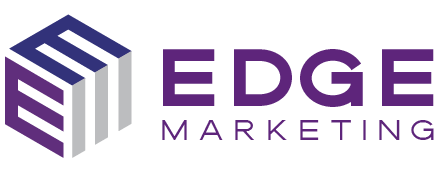The End of Cookies?
by Megan Miller
“By clicking ‘Accept All’, you consent to the use of ALL cookies. However, you may visit Cookie Settings to provide a controlled consent.”
How many times per week do you encounter a website alert with a message like this? Do you take a moment to set your preferences or just blow through it and accept all cookies?
A recent survey by NordVPN shows that almost half of U.S. web users hit the “Accept All” button whenever they run into a cookie notification, effectively allowing more information about their activity to be shared.
What Are Third-Party Cookies?
When you visit any website, it may store or retrieve small pieces of data from your browser, mostly in the form of cookies. This information might be about you, your preferences or your device. The information does not usually directly identify you, but it can give you a more personalized web experience.
Third-party cookies can capture demographic and geographic information, and advertisers use that data to target, retarget and display ads. Cookies are at work, for example, when you look at some sunglasses on a shopping site and you later see ads for those sunglasses on other websites. Cookies also can remember your passwords and keep items in your shopping cart when you exit the browser.
Privacy and Security Risks
Privacy and transparency concerns among consumers are causing many businesses to reconsider their use of third-party cookies. A growing number of state privacy laws, in addition to existing GDPR regulations, require businesses to disclose to customers what information they collect and how they use it. The cookie preferences pop-up when you visit a website for the first time is an effort to allow users some control over their data. Given that most users agree to all cookies, it’s clearly not an effective long-term solution.
Security experts also warn that cookies do follow you online. Even if you hide your IP address by using a VPN, cookies can track your online activity and form a partial ID of who you are. Some sites earn revenue by selling third-party cookies data.
Enter the Cookie-Cutter
We’ll focus here on Google, as the Chrome browser has an over 60% share in the browser market and, coincidentally, Google’s cookie-based ads are a $150 billion-per-year business. So Google is on a mission to increase online privacy while replacing cookies with a technology that the ad industry will welcome and can smoothly transition to.
In June 2021, Google announced it would phase out third-party cookies in late 2023, with new tracking technology to replace them. In response to ad industry demands for more time to plan a transition, Google announced in July 2022 that it will now hold off until 2024.
How Will the End of Cookies Change Digital Marketing?
The end of third-party cookies will alter or even eliminate hyper specific targeting and retargeting as we know it. Marketers won’t have access to data about what people search for and look at on websites and apps other than the information they offer to us when they visit our website (first-party data). So the end of cookies will drive us to put a greater focus on alternatives to cookie-based marketing.
What Can You Do Now?
First, don’t panic. Cookies and cookie preferences will be around until 2024, or even longer. In the interim, new technologies and ad software are likely to emerge. Until then, consider the tools you have in your marketing toolbox, and keep an eye on Google.
Focus on First-Party Data
The post-cookie world will not eliminate prospect and client data. You keep a CRM database with contact information and notes on prospects from trade shows and marketing campaigns. That data, combined with client or customer activity, is a valuable source of first-party data. Plan to dig into that first-party data to get insights about customers and to look for patterns that allow retargeting.
Consider Contextual Ads
Publishers are particularly concerned about the new cookieless world, and with good reason. A Google study of 500 major publishers found that cookieless traffic delivered an average of 52% less revenue than traffic with cookies. It’s not clear how Google will address this issue. For now, Google has just said it is exploring different technologies aimed at meeting privacy standards and publishers’ needs.
In the meantime, marketers and publishers should consider contextual advertising. In contextual advertising or targeting, users receive ads that match the content they view instead of ads that match their data. Contextual ads match a website’s content using keywords and topics. For example, a user reading about legal practice management might see an ad for practice management software on the same page.
Google Topics
An alternative in its fledgling stage is Google Topics. Topics groups users anonymously by interest, based on websites they visited in the past three weeks. Topics lets marketers continue to serve targeted ads.
With Topics API, a user’s browser determines a handful of topics such as Law and Government/Legal Services or Finance/Accounting and Auditing, which represent the top interests for the previous week based on the browsing activity. When a user visits a participating site, the Topics API will share up to three topics from the past three weeks with advertisers who can use it as one of many signals for interest-based advertising.
So, in professional services, we will be able to promote legal and accounting services to people who have browsed the relevant categories. We’ll just be doing it in a way that is more private than using cookies and identifying information.
Google Won’t Take Away Ads
The end of Google third-party cookies isn’t the end of digital advertising. However, marketers should consider their options in the next two years and keep an eye on the evolving Google Topics and digital ad technology.
About the Author
Megan Miller is a senior consultant with Edge Marketing, assisting clients in development and execution of strategic marketing plans and implementation of marketing technologies. A global technology hound, Miller has built brands, trained teams and introduced successful products for global companies and startups. A certified eDiscovery expert, Miller has written on trends and topics in electronic discovery, consumer electronics and the internet of things – before the IoT was even a thing. Her work has appeared in Attorney at Law, US Tech, TechnoLawyer, ACEDS and other industry publications.


Leave a Reply
Want to join the discussion?Feel free to contribute!